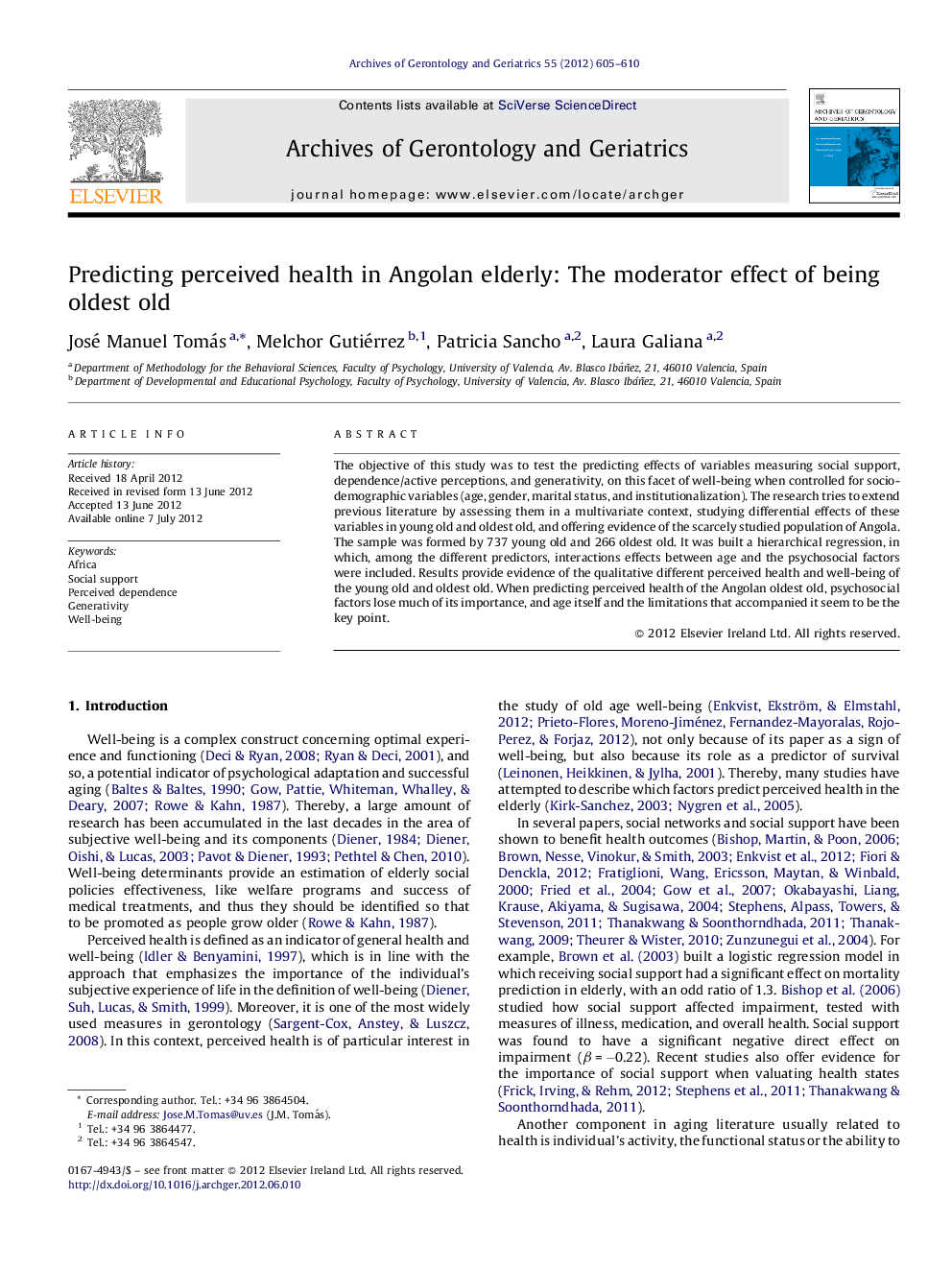| Article ID | Journal | Published Year | Pages | File Type |
|---|---|---|---|---|
| 1903637 | Archives of Gerontology and Geriatrics | 2012 | 6 Pages |
The objective of this study was to test the predicting effects of variables measuring social support, dependence/active perceptions, and generativity, on this facet of well-being when controlled for socio-demographic variables (age, gender, marital status, and institutionalization). The research tries to extend previous literature by assessing them in a multivariate context, studying differential effects of these variables in young old and oldest old, and offering evidence of the scarcely studied population of Angola. The sample was formed by 737 young old and 266 oldest old. It was built a hierarchical regression, in which, among the different predictors, interactions effects between age and the psychosocial factors were included. Results provide evidence of the qualitative different perceived health and well-being of the young old and oldest old. When predicting perceived health of the Angolan oldest old, psychosocial factors lose much of its importance, and age itself and the limitations that accompanied it seem to be the key point.
